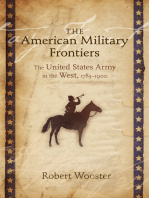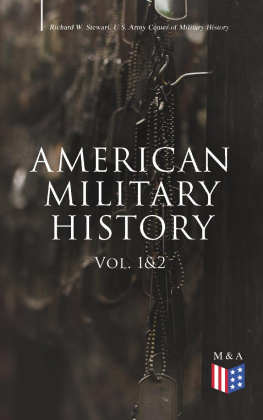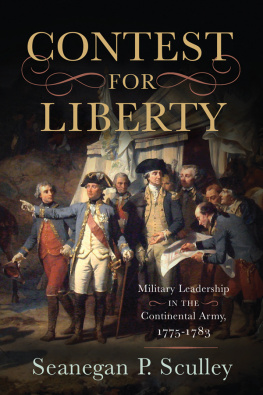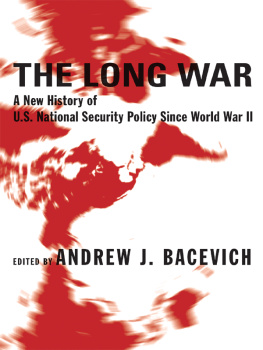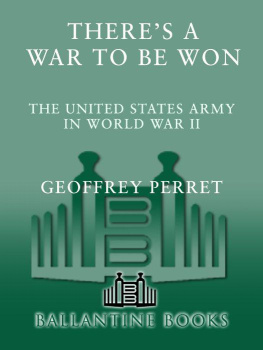This edition is published by PICKLE PARTNERS PUBLISHINGwww.pp-publishing.com
To join our mailing list for new titles or for issues with our bookspicklepublishing@gmail.com
Or on Facebook
Text originally published in 1962 under the same title.
Pickle Partners Publishing 2016, all rights reserved. No part of this publication may be reproduced, stored in a retrieval system or transmitted by any means, electrical, mechanical or otherwise without the written permission of the copyright holder.
Publishers Note
Although in most cases we have retained the Authors original spelling and grammar to authentically reproduce the work of the Author and the original intent of such material, some additional notes and clarifications have been added for the modern readers benefit.
We have also made every effort to include all maps and illustrations of the original edition the limitations of formatting do not allow of including larger maps, we will upload as many of these maps as possible.
TOWARDS AN AMERICAN ARMY:
MILITARY THOUGHT FROM WASHINGTON TO MARSHALL
BY
RUSSELL F. WEIGLEY
PREFACE
THIS book is a history of controversies that have surrounded the growth of the United States Army, controversies that have flared over the inextricably related questions of how to attain maximum military security for the United States and how to form an army that will be appropriate to and not subversive of American democratic society.
These questions obviously have never been more relevant than they are now, and an examination of past efforts to solve them, even though in eras much simpler than ours, may aid us in approaching them today. The past perhaps never offers sure answers to questions of present policy, and the past never answered the above questions satisfactorily, even for itself. But the experience of the century and three-quarters of American history reviewed here in exploring the dimensions of the questions and the limits of possible solutions should nevertheless offer valuable guide markers to the present.
There are further suggestions for today that a study of the search for an effective American army may offer. This book examines the ideas of men in various positions who considered the problems of American military policy during the period 1776-1951. Since most of that period constituted the long epoch when civilian Americans considered military issues remote, perforce most of the men whose ideas are discussed herein were military men. A study of American ideas of military policy cannot help but be a study mainly of the ideas on military policy expressed by professional soldiers.
Therefore the book offers some measure of information on the attitudes and thought processes that have been traditional and habitual among American professional soldiers. Especially, it reveals something of their customary approach to issues of military policy where such issues merge with those of national policy in general. And to know something about the customary approach of military men to the broadest issues of military and national policy is also of manifest value to the present.
The United States has closed the most recent of its experimental inquiries into the presidential qualifications of the professional military man. But the new intimacy between military issues and every other area of national life suggests that similar experiments in the professional soldiers exercise of non-military responsibilities are not ending, but are merely beginning. With professional soldiers offering leadership beyond the traditional limits of their calling, and with their calling itself now closely bound up in the most important national activities, it behooves the American citizen to study every possible indication of the sort of leadership he can expect from the professional soldier, within and beyond that soldiers professional sphere. Since the professional soldier, like the initiate of any profession, is in part the product of the history and traditions of his profession, a historical approach to our questions may again reveal their general dimensions.
How competent have the judgments of professional soldiers been in the past when issues of military and national policy have merged? What traditional attitudes of their profession have shaped their judgments on such issues? What effect may such attitudes, if they have persisted, exert upon the judgments of military men today? This book also seeks to offer the reader suggestions towards answering such questions.
During most of their history the American people faced no serious external military threat. Most Americans and even their government could afford to devote to the pursuits of peace most of the thought and energies that other nations gave over to wars and preparation for wars. But the United States won its independence in the course of a global war, found its security threatened for several decades thereafter by other global wars, and then, following the long interval of safety, discovered itself caught up in the global wars of the twentieth century. Even during the long nineteenth-century era of safety, many thoughtful Americans were sure that a country so rich and potentially powerful as theirs could not remain forever aloof from international politics and thus be forever secure, especially in a world where technology was rapidly narrowing distances. There has been no period when Americans gave no thought whatever to their military security. There has always been some concern, if not for the present, then for the future.
In a country of ocean frontiers concern for military security implied an interest in naval power, and such an interest appeared early and persisted. But the United States is a continental as well as an oceanic state, and American concern for defense has turned also on the building of an American army.
From the beginning of the national history, there was controversy as to the sort of force that would constitute an appropriate American army. Europe in that day was a continent of professional standing armies, but the English legacy and the United States colonial as well as revolutionary experience had created in America a tradition of the nonprofessional soldier, of the armed citizenry. Since the United States was embarking on an experiment in popular government, a popular army raised from the armed citizenry seemed to many Americans appropriate to their countrys condition. But to seek national defense through a nonprofessional, citizen army was to run the risk that such a force might not be able to cope with the professional armies of Europe, one or more of which it presumably would have to face in any major war in the future, and the British example of which it faced at the outset. An army of armed citizens offered the advantage of vast numbers, but its numbers might be offset by the superior skill of professional adversaries.
From the beginning of American history, therefore, part of the concern for national security took the form of this controversy: should the American army be a professional force modeled on the armies of Europe or a nonprofessional force reflecting the ability of a popular government to entrust arms to its citizens. This controversy persisted unresolved when in the World Wars the United States did at last have to pit its army on a large scale against European armies, when arguments were put to the test of performance. Indeed in new forms controversy over the proper roles of professional and nonprofessional soldiers still exists. The controversy of amateur versus professional soldiers has endured as a major theme of all except exclusively naval thought about American defense. The history of American ideas on naval defense and sea power has largely been told elsewhere. This book will review the debates of those who sought to create an American army effective as a military force and appropriate to American life.


